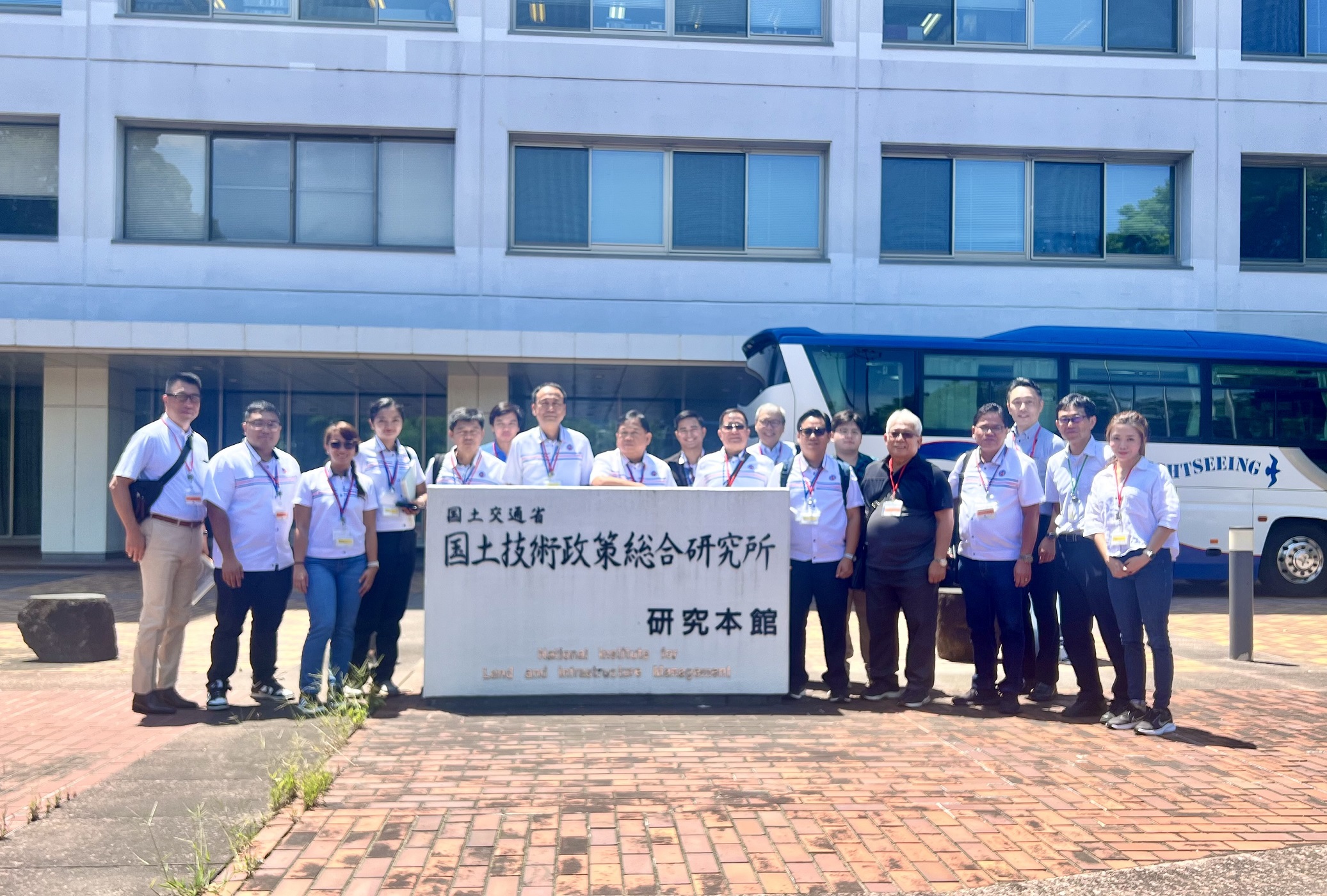
A delegation from the Department of Public Works and Highways (DPWH) went in Japan aimed at enhancing their technical skills and knowledge through a comprehensive capacity development program.
This initiative underscores the agency’s commitment to adopting state-of-the-art technologies to improve infrastructure development in the Philippines, particularly in tunneling projects.
Organized in collaboration with leading Japanese engineering firms such as Nippon Koei Co., Ltd., Metropolitan Expressway Limited, Philkoei International, Inc., and institutions like the Japan International Cooperation Agency (JICA) and the Ministry of Land, Infrastructure, Transport and Tourism (MLIT), the program offers DPWH the opportunity to gain firsthand experience and insights into Japan’s advanced engineering practices in road tunnel and expressway operation.
This training started on July 23, 2024, headed by Project Director Benjamin A. Bautista of the Unified Project Management Office - Roads Management Cluster I (Bilateral), marks the second batch in Japan and is part of the tasks under the Terms of Reference for the Consultancy Contract for the Capacity Development of DPWH Staff in Tunnel Operation and Maintenance. It also includes the preparation of tender documents for the procurement of services for the operation and maintenance of the Davao City Bypass Construction Project.
The program covers hands-on experience in various aspects of modern construction techniques, including cutting-edge tunneling methods and the actual operation of tunnels in Japan including emergency response.
DPWH Secretary Manuel M. Bonoan expressed his optimism about the program, stating, “this capacity development initiative is a significant step towards upgrading the capabilities of DPWH personnel. By learning from Japan’s technological advancements, we can ensure that our infrastructure projects meet the highest standards of quality, safety, and efficiency.”
In his report to Senior Undersecretary for UPMO Operations Emil K. Sadain, in-charge of DPWH infrastructure flagship projects, Project Director Bautista said that the training program includes site visits to some of Japan’s most notable infrastructure projects, such as the Kamariya-Shodo Tunnel in Yokohama.
The Kamariya-Shodo Tunnel is part of the expressway network managed by NEXCO-East (East Nippon Expressway Company) in Japan. This tunnel is a critical component of Japan’s advanced transportation infrastructure, showcasing innovative engineering and safety features. The tunnel plays a vital role in managing traffic flow and ensuring efficient connectivity within the region.
The visit at the Kamariya-Shodo Tunnel to study and gain insights into advanced tunnel construction techniques, maintenance practices, and safety measures is part of an ongoing effort to improve the Philippines’ infrastructure by learning from international best practices.
Key features observed included the tunnel’s structural design, ventilation systems, emergency response protocols, and the use of cutting-edge technology for monitoring and maintenance.
By examining such monumental structures like the Kamariya-Shodo Tunnel, DPWH aimed to apply these learnings to enhance the quality and safety of tunnel projects in the Philippines particularly the ongoing Davao City Bypass Construction Project, contributing to the country’s infrastructure development goals.
In addition to site visits, the program features a courtesy call at JICA and MLIT offices in Tokyo, a site visit and lecture by the Public Works Research Institute (Tsukuba Central Research Institute), a lecture and site visit to the Integrated Control Center of Shutoko by the East Tokyo O&M Bureau of Shutoko, and hands-on learning at the Life Safety Learning Center, including smoke, firefighting, earthquake, and first aid experiences at the Honjo Life Safety Learning Center of the Tokyo Fire Department. Additionally, a lecture was given by NEXCO-West in Osaka including presentation on their experience at a tunnel fire accident.
The knowledge gained from these sessions will be invaluable in addressing the unique challenges faced by infrastructure projects in the Philippines.
This initiative is part of the DPWH’s broader efforts to strengthen international cooperation and knowledge exchange in the field of engineering, applicable to the ongoing and upcoming projects in the country.
By fostering partnerships with countries renowned for their engineering excellence, the DPWH aims to elevate the standards of Philippine infrastructure and contribute to the nation’s economic growth and development.
The DPWH delegation returned on July 28, 2024 to the Philippines equipped with enhanced technical expertise and a renewed commitment to implementing innovative solutions in the country’s infrastructure projects.
This initiative marks a significant milestone in the DPWH’s journey towards building a more resilient and modern infrastructure network for the Filipino people.
